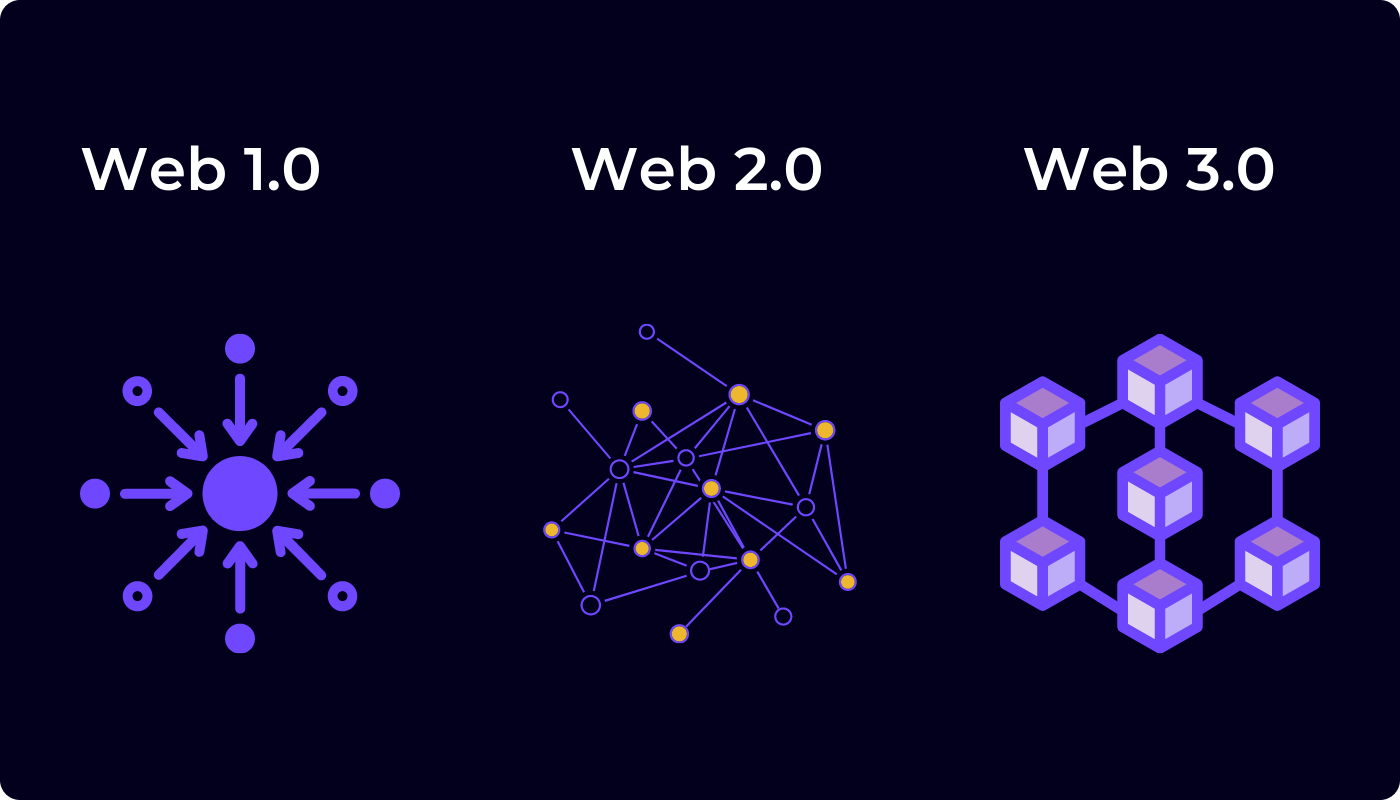
By now, you’ve probably heard the tech buzzword “Web3” in the context of Bitcoin or NFTs of viral memes. Web3, considered to be the next iteration of the internet, is based on blockchain technology, allowing users to read, write, and own their data. However, what you might not know is that Web3 can be leveraged by enterprise organizations to guarantee consumer privacy and security while still allowing for better CX as an outcome.
Here are a few reasons why Web3 can be the future of CX.
Web3 vs. blockchain: A primer
Blockchain is a distributed, decentralized ledger that records transactions securely, permanently, and efficiently. It is not controlled by any one entity, so it has no single point of entry. No one person or entity “owns” the information. The model is highly secure and can be applied to anything of value: currency, personal information, and data of any kind. Think of blockchain as a database arrayed in multiple redundant nodes in many locations. Web3 is the overarching trend that blockchain is a part of —it is the practice of using blockchain to accomplish business solutions beyond simply storing data. Web3 gets its name from its agreed-upon place in the evolution of the internet—the original internet made up of static HTML pages is known as “Web 1.0” and the transition to dynamic social media as Web 2.0. Thus, we’ve arrived at Web 3.0, or Web3.
Blockchain can be leveraged by smart developers to create what are called “smart contracts.” The name is a misnomer, as famous Web3 developers have said that they are neither “smart” nor “contracts.” If you are lost in the minutiae of this terminology, you are not alone. Elon Musk has famously said he is “too dumb to understand smart contracts.”
People get confused thinking that Web3 is the same as cryptocurrency. Though Web3 does include cryptocurrency, the key takeaway of this technology is that it can serve as a building block for enterprise solutions. It’s available to you turnkey and hosted in a public, private, and hybrid way—just like virtualized computers and databases—and adding blockchain to many enterprise solutions generates concrete business value.
But just because a technology is “cool” and hyped does not mean it’s relevant to your business. There is a lot of froth in the world of blockchain, so not all solutions branded as Web3 will yield much, if any, use value. The tenets of Web3, however, do allow for a more decentralized approach to applications and business services.
Why Web3 fits into CX strategy
Companies engage with customers where they are at. Nobody lives in the cloud. From an organizational perspective, however, the traditional challenge of being “everywhere all the time” for customers is expensive—for hosting, managing, and dealing with complexity. One such challenge of needing to be everywhere all the time is enabling point of sale and currency transactions. This is the origin story of blockchain to cryptocurrency to decentralized applications (dApps).
Why does Web3 matter to the enterprise? A turnkey hosted decentralized application framework with the trust and privacy of blockchain built in means fertile ground for B2C applications, by allowing for companies to be everywhere all the time. Web3 makes blockchain technology actionable.
Let’s say we want to create a certificate of authenticity for a physical product we market, manufacture, and sell (like Nike does). Remember the goal: we want to tie our customers to our brand. We need a record of ownership that our customers find value in now and over time. In a Web3 world, that is called an NFT—non-fungible token (a fancy way to say record of ownership). The art and card trading world is in the process of reinventing itself with this technology, but the same technology can be leveraged by enterprises.
This digital artifact can be given to a customer. That customer keeps it in their digital wallet (fancy way to say blockchain user account). When the customer wants to resell that product or prove ownership it is available 24/7/365 at no cost to you (the manufacturer) or them (the owner).
Get up and running with Web3
Advocates of Web3 see the ability to reduce latency and intermediaries between businesses making products and customers consuming them. They see a fully hosted network connecting us all, free to use to view and track, and one that costs us fractions of pennies for each product produced or sold. Leveraging this technology allows enterprises to connect, serve, and learn from customers directly without the need of physical presence, third party transaction go-betweens, and/or heavily regulated privacy limitations—resulting in a faster, more convenient, and more enjoyable experience for customers.